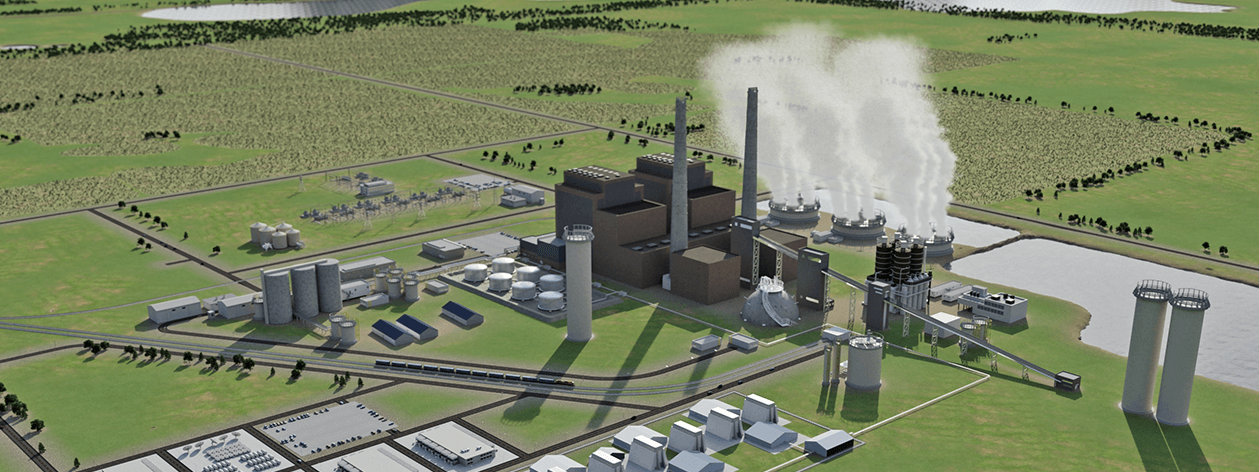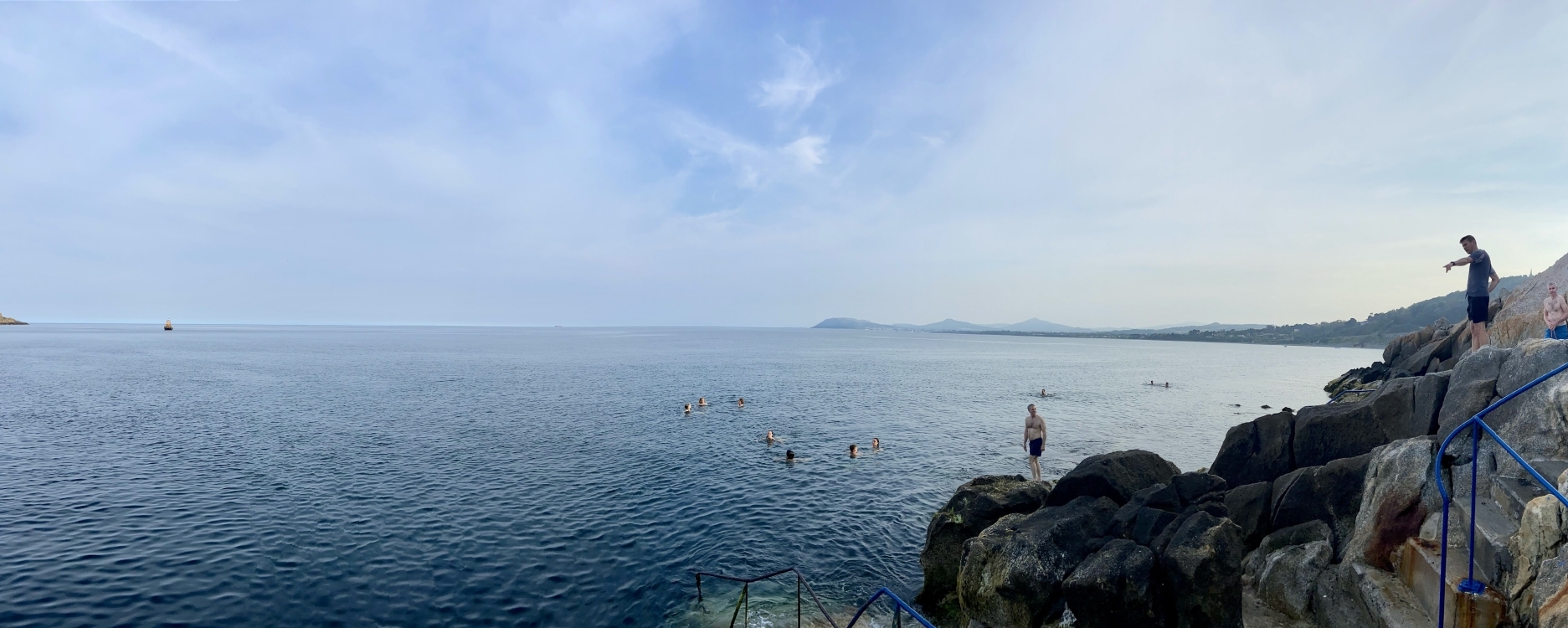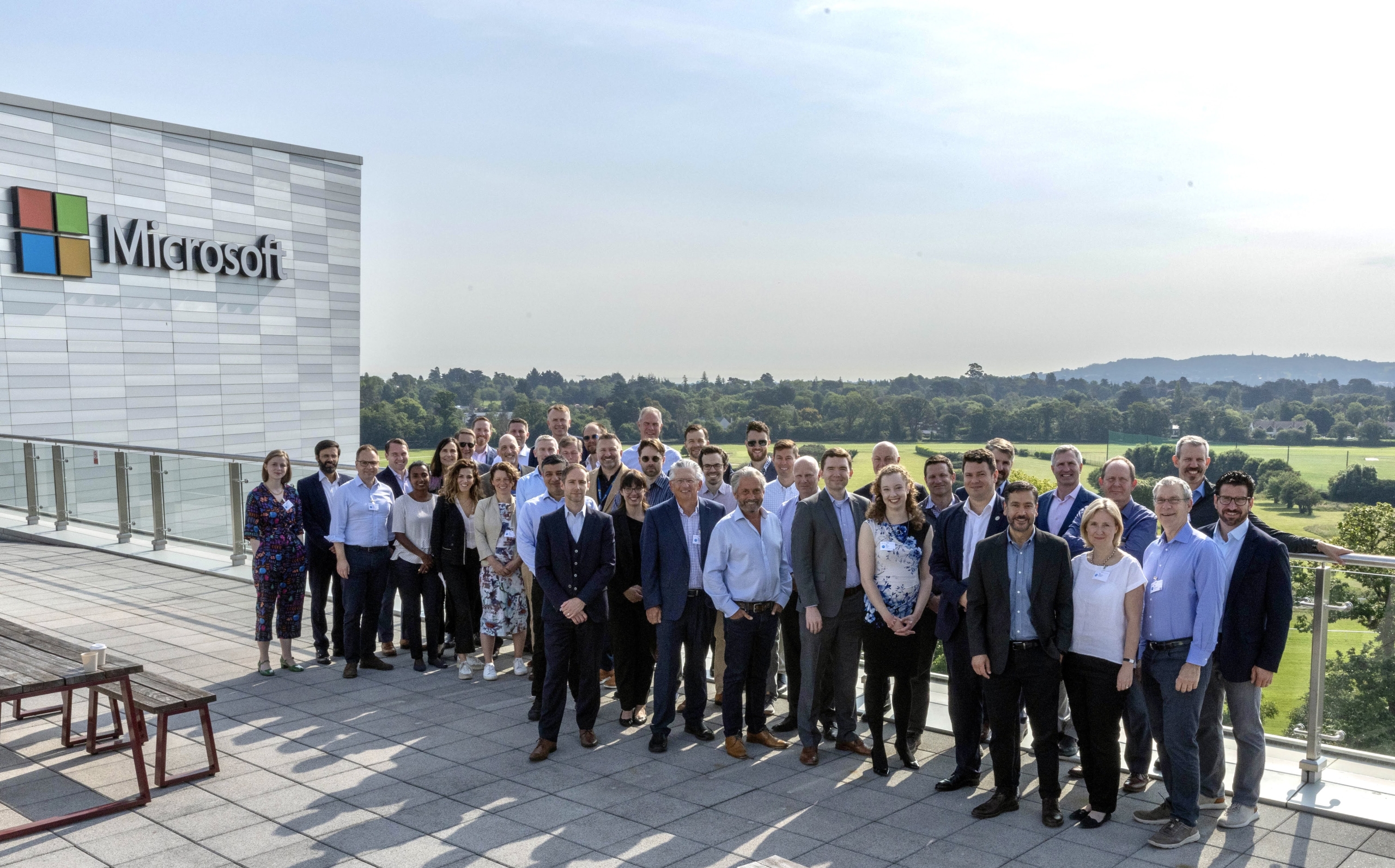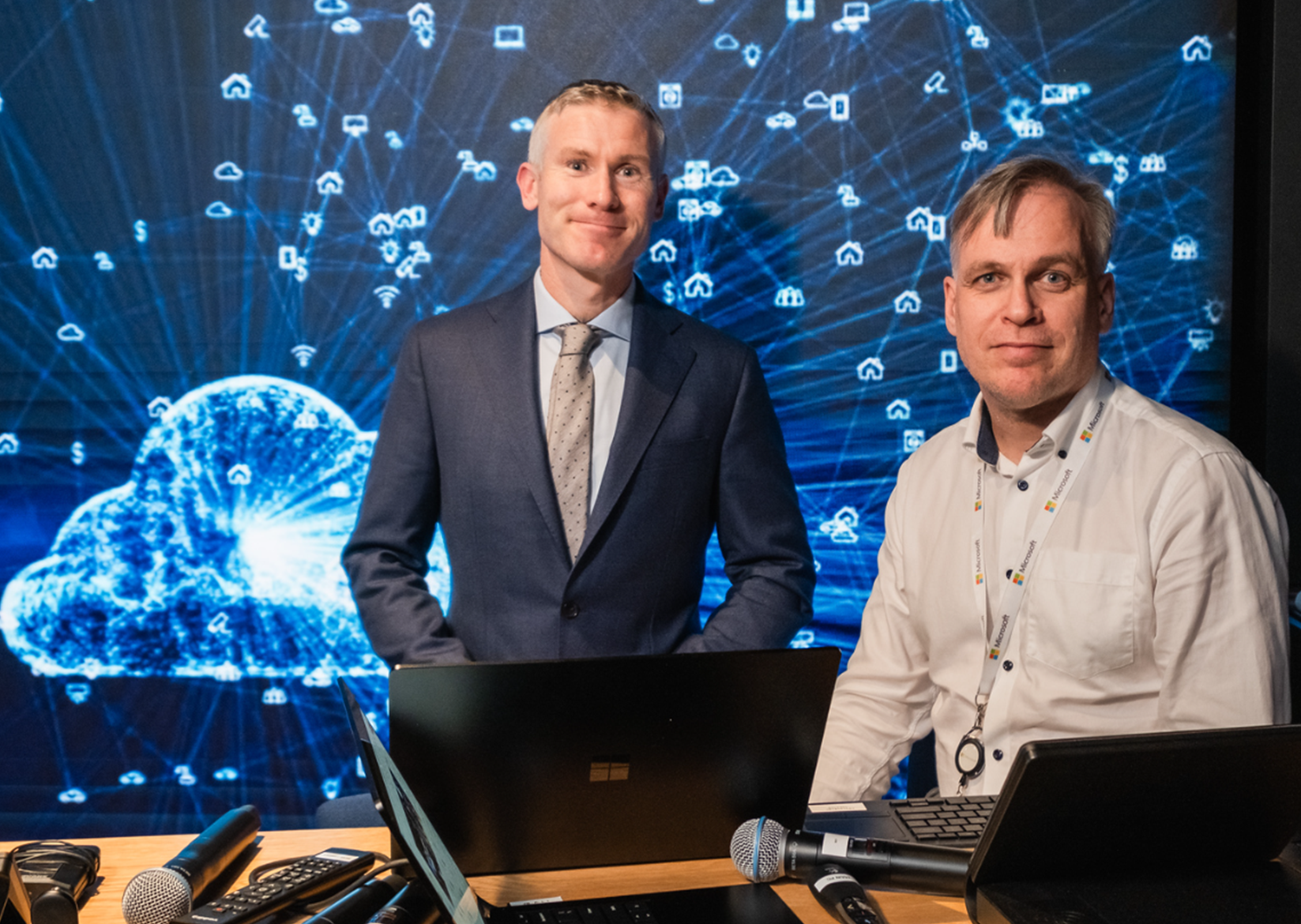Generative AI for Permitting
A mission to bring the clean energy future

Together, we’re tackling one of the biggest challenges in deploying nuclear technology, which is navigating complex, slow, and costly licensing processes.
About Generative AI for Permitting
Permitting is the single biggest bottleneck to deploying clean energy fast enough to avoid runaway climate change. In some cases, it takes over a decade and hundreds of millions of dollars to get a single nuclear plant licensed—before it generates a single watt of power. That’s not just inefficient—it’s existential.
So a project team of 53 hackers from across Microsoft set out to change that. Their mission? Use generative AI to break open the permitting logjam and accelerate the global energy transition. What started as a Hackathon 2024 project called Project GreenLight is now a commercial workstream with real customers, real revenue, and real-world impact.
Taking the plunge
Before the hackathon, before the code, before the AI—there was a swim.
On June 21, 2022, the Repowering Coal Consortium gathered at Microsoft’s Dublin offices. It was early days. No formal agenda. Just a room packed with 50 people from across the advanced nuclear industry, brought together by Terra Praxis and Microsoft. The question on the table: How do we go from one nuclear reactor being built per decade in the Western world to the 2,500 needed to replace coal globally?

The conversations were raw, open, and urgent. Bottlenecks surfaced. Manufacturing. Deployment. But one stood out: permitting.
And then came the swim.
That evening, the group walked down to the cliffs of Vico, just south of Dublin. They jumped into the sea together—executives, engineers, innovators. No suits. No silos. Just shared purpose.
“It just unlocked everyone. It became a non-competitive group of companies, collaborating in the spirit of friendship.” —Conor Kelly
That moment of vulnerability and connection set the tone for everything that followed. It wasn’t just about solving a technical problem. It was about unlocking a movement.
The permitting pain point
The idea was born from years of work with the nuclear industry through the Repowering Coal Consortium. The team kept hearing the same thing: “Permitting is killing us. It is the single biggest bottleneck standing between us and the decarbonization of coal power globally”. That insight became the spark.
Originally focused on nuclear permitting, the project quickly expanded to cover renewables, mining, and other clean energy sectors. The team’s ambition grew with each iteration, and so did their impact.
This is a team that knows what it takes.
The third time’s even more charming
Hackathon 2024 was the team’s third Hackathon. They came prepared. Months in advance, they mapped out roles, recruited talent, and built a plan to hit the ground running Monday morning.
They tackled three core challenges:
- Automated Document Creation: Using generative AI to draft permitting documents from historical and project-specific data.
- Copilot for Permitting Engineers: A copilot with the company’s entire regulatory dataset that supports ad-hoc queries by the permitting team. Crucially, this runs entirely on the company’s own Azure tenant, preventing data leaking through employee’s queries to external generative AI systems running over the internet.
- Pre-Submission Review for Regulators: AI that flags missing information before formal submission, reducing costly delays.
The team didn’t just build prototypes—they shipped. “We’ve delivered four AI design wins, and we’re powering quite a few companies in the energy industry and beyond. This isn’t abstract,” shared Kelly.
The hackathon effect
This wasn’t just a side project—it was a proving ground. The Garage’s Hackathon gave the team the space, support, and scrappy energy to turn a bold idea into a commercial reality.
“It’s incredible to see that what began as a side project got Microsoft into nuclear,” enthused Ed Essey, Senior Director of Business Value and a coach to the team. “Now, it shapes the face of the planet and how it creates energy in a way that protects our planet for generations to come.”
The Hackathon environment allowed the team to move fast, experiment freely, and iterate without the constraints of traditional product development. Coaching sharpened their messaging. Community amplified their reach. And the hacker spirit kept them focused on impact.
What started as a prototype became a blueprint for how Microsoft can lead the clean energy transition—not just through technology, but through purpose-driven innovation. The Garage didn’t just support the project. It shaped it.
It wasn’t all plain sailing
Before generative AI became mainstream—before the Azure OpenAI partnership even launched—the team tried to tackle permitting with traditional software approaches. It didn’t work.
“We first started trying without generative AI… just normal software programming. It was an intractable problem.” —Conor Kelly
The breakthrough came when the team realized that generative AI could do what deterministic systems couldn’t: dynamically pull from massive, varied datasets and generate content in the flexible formats required by different licensing documents. That shift unlocked a much wider applicability—not just for nuclear permitting, but across clean energy sectors like wind and mining.
Then came the second breakthrough. By chance, the team connected with a member of the Semantic Kernel team, who joined the Hackathon effort. Together, they built a system that could intelligently identify which data sources to use for each section of a permitting document and structure the output accordingly. What used to take months or years—creating the first draft—now took five minutes.
And it didn’t stop there. By integrating Azure OpenAI and Kernel Memory, the team added a feature that could review permitting applications against relevant regulations before submission—avoiding months or years of back-and-forth with regulators. The recent addition of agentic AI workflows turbocharged this capability, enabling multiple agents to draft, review, and refine documents in real time.
“This project was about realizing much wider applicability—not just this specific nuclear permitting document, but right across the nuclear permitting field and into wind and other renewable energy permitting.” —Conor Kelly
The result? A scalable, intelligent system that’s already increasing productivity across the energy industry—and it all started with Hackathon.

Built to matter
What started as a Hackathon idea is now shaping policy, accelerating deployment, and influencing global energy strategy.
The numbers speak for themselves: 25–75% productivity gains in permitting workflows.
This catalyzed a cross-Microsoft task force on AI for permitting, with support from Melanie Nakagawa, Chief Sustainability Officer; Darryl Willis, CVP of Energy and Resources Industry; and Brad Smith, President and Vice Chair. The workstream is engaging with government and regulatory entities across the world in addition to the energy and mining industries.
Next stop: everywhere
The project is now a full-fledged commercial workstream under MCAPS Energy & Resources. It’s expanding into new “hero scenarios” like mining and offshore wind, with a modular architecture that allows customers to add new datasets and use cases.
The team is creating a core generative AI permitting layer and spinning off hero scenarios for different industries.
The team is also working with regulators to improve their productivity, ensuring that faster permitting on the industry side doesn’t overwhelm the public sector.
And they’re just getting started.
The team’s innovation expands the legacy of fellow Garage Wall of Fame member Repowering Coal.
Team

Pictured: Conor Kelly, Henning Kilset
Not Pictured: Adam Wilson, Alison Pouw, Bogdan Gheorghe, Brenna Courtney, Bryan Lopez, Bjørn Atle Vorland, Chen Sun, Dary Pena, Devagnanam Jayaseelan, Devina Sachin Dhuri, Dhanshri More, Divya Patra, Eirik Haughom, Eshna Dwivedi, Floriana Panzarella, Gaurav Srivastava, Gumyrbek Sandibekov, Hanna Yip, Jia He, Ian Curtis, Isabel Candil, Jayeshkumar Mevada, Jung Hun Choi, Kunal Parekh, Kyle Prawel, Mahesh Balusa, Nalin Singh, Natasha Kohli, Naveen Panwar, Neeaj Joshi, Nikita Sivakumar, Pat Lo, Pavneet Singh Kochhar, Poulami Majumder, Pranshu Bansal, Priyanka Soni, Ragunath Gunasekaran, Mukund Rungta, Sadid Hasan, Sagar Thore, Samarth Shah, Saumya Srivastava, Shreyansh Sinha, Sunaina Lalwani, Surbhi Sachan, Swati Shastri, Tiago Leite, Todd Noe, Vidhu Shekhar, Vini Dixit
